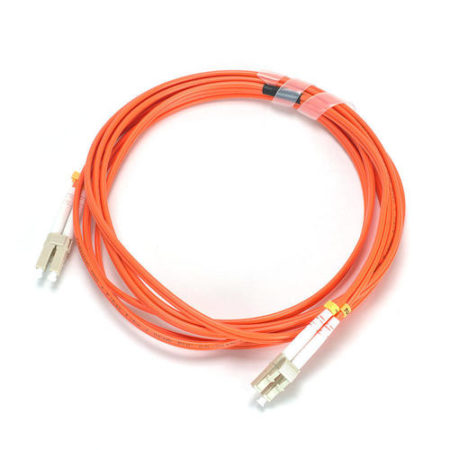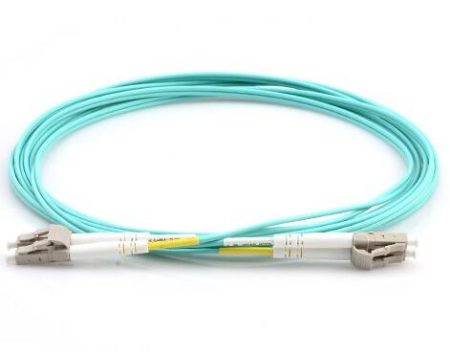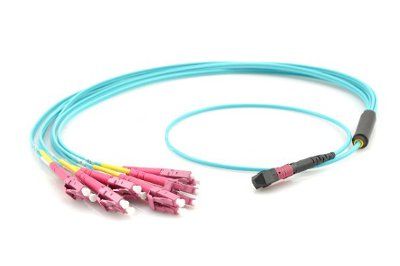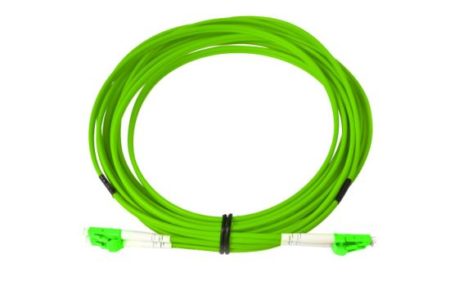If the multimode fiber is mentioned, most of you may be familiar with this term. As a significant member of the large fiber optic cable family, multimode fiber optic cable also consists of many sub-branches. However, not all the people are clear about these subbranches. Therefore, in this article, we will introduce the multimode fiber optic cable and its subbranches to you.
What Are Multimode Fiber Optic Cables
In optical fiber technology, the multimode fiber is a kind of optical fiber that is designed to carry multiple light rays or modes concurrently, each at a slightly different reflection angle within the optical fiber core, typically 50 or 62.5 μm for its core diameter. Mostly, the multimode fiber is used for communications over short distances, such as within a building or on a campus for the reason that its modes tend to disperse over longer lengths (this is called modal dispersion).
Applications of Multimode Fiber
Typical multimode transmission speed and distance limits are 100 Mbit/s for distances up to 2 km (100BASE-FX), 1 Gbit/s up to 1000 m, and 10 Gbit/s up to 550 m. In addition, the equipment used for communications over multimode optical fiber is less expensive than that for single-mode optical fiber. Because of its high capacity, reliability, and cheap price, the multimode optical fiber mostly is used for backbone applications in buildings, aerospace and LAN network, storage area networks.
Types of Multimode Fiber
Identified by ISO 11801 standard, multimode fiber optic cables can be classified into the OM1, OM2, OM3, OM4, and OM5 fiber. Specified by that Standard, “OM” is abbreviated for optical multimode. These five types will be presented in the following parts.
Wearing an orange jacket, OM1 fiber cable possess a core size of 62.5 µm, supporting 10 Gigabit Ethernet at lengths of up to 33 meters. It is most commonly used for 10/100 Megabit Ethernet applications. This type is commonly used as an LED light source.
Just like OM1, OM2 fiber also comes with an orange jacket and uses an LED light source. But, its core size is 50 µm, supporting up to 10 Gigabit Ethernet at lengths up to 82 meters and more commonly used for 1 Gigabit Ethernet applications.

Like OM2, the OM3 fiber cable’s core size is 50 µm, but it wears an aqua jacket and is optimized for laser-based equipment. OM3 supports 10 Gigabit Ethernet at lengths up to 300 meters. Besides, OM3 is able to support 40 Gigabit and 100 Gigabit Ethernet up to 100 meters. However, 10 Gigabit Ethernet is most commonly used.

Being backward compatible with OM3 fiber, the OM4 fiber shares the same aqua jacket with it. The OM4 was developed specifically for VSCEL laser transmission and allows 10 Gig/s link distances of up to 550m compared to 300M with OM3. And it’s able to run at 40/100GB up to 150 meters utilizing an MPO connector.

OM5 fiber, also known as WBMMF (wideband multimode fiber), is the newest type of multimode fiber, and it is backward compatible with OM4. It has the same core size as OM2, OM3, and OM4. The color of the OM5 fiber jacket was lime green. It is designed and specified to support at least four WDM channels at a minimum speed of 28Gbps per channel through the 850-953 nm window.

Conclusion
Through this article, we will have a basic idea of what the multimode fiber cable is and how many types it has. In general, multimode fiber cable continues to be the most cost-effective choice for enterprise and data center applications up to the 500-600 meter range. However, since the fiber patch cable is a very large family, every kind has its own features. Before making a choice, the key point is we need to understand whether our demands match the patch cable we want to choose.
